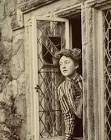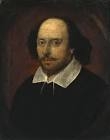Leo Tolstoy – Prolific Author, Philosopher, Family Man
Leo Tolstoy, in full Lev Nikolayevich Tolstoy, was a Russian writer born on September 9, 1828, in Yasnaya Polyana, Tula Province, Russian Empire. He is best known for his novels “War and Peace” and “Anna Karenina,” which are considered literary masterpieces and some of the greatest works of fiction ever written. Tolstoy’s writing style and philosophical outlook have left an indelible mark on world literature and thought. Beyond his literary pursuits, Tolstoy was also known for his moral and religious beliefs, which shaped his later life and works.

Personal Information
| Full Name | Lev Nikolayevich Tolstoy |
|---|---|
| Nick Name / Stage Name | Leo Tolstoy |
| Born | September 9, 1828, Yasnaya Polyana, Tula Province, Russian Empire |
| Died | November 20, 1910, Astapovo, Ryazan Province, Russian Empire |
| Age | 82 |
| Gender | Male |
| Zodiac Sign | Virgo |
| Hometown | Yasnaya Polyana |
| Nationality | Russian |
| Years Active | 1847-1910 |
| Marital Status | Married |
| Husband/Wife | Sophia Tolstaya |
| Children | 13 (8 sons, 5 daughters) |
| Political Affiliation | Christian Anarchist |
| Alma Mater | Kazan Federal University, University of Moscow |
| Profession | Writer, Philosopher |
| Net Worth (approx.) | N/A |
| Debut | Childhood, with the story “The Adventures of the Ace-Knight” |
| School | Home Schooled |
| College | N/A |
| Education Qualification / Degree | Self-Educated |
| Hobbies/Habits/Interests | Reading, Education, Carpentry |
| Favorite Clothing Brands | N/A |
| Favorite Gadgets | N/A |
| Food Habit | Vegetarianism |
| Awards | N/A |
| Notable Works | “War and Peace,” “Anna Karenina,” “The Death of Ivan Ilyich” |
| Website | N/A |
Early Career
Leo Tolstoy’s early career was marked by his military service, which began in 1851 when he joined the Russian army. During his time in the military, he began writing professionally, publishing his first novel, “Childhood,” in 1852. This was the first work in his autobiographical trilogy, which also included “Boyhood” and “Youth.”
Despite finding some success as a writer, Tolstoy struggled with the loss of his parents and brother during his early career, which led him to question the meaning of life and fuelled his philosophical inquiries. These internal struggles would later manifest in his writing on existential and moral themes.
Education
Leo Tolstoy’s educational journey began at home, where he was taught by private tutors. He showed great intellectual promise from a young age but found the formal education system of the time restrictive and uninspiring. Nevertheless, he went on to attend Kazan Federal University but dropped out before completing his degree. He later studied law at the University of Moscow but again did not graduate.
Tolstoy’s self-directed education was instrumental in shaping his intellectual development. He was well-versed in literature, philosophy, history, and educational theory. His wide-ranging interests and self-education laid the foundation for his future literary and philosophical work.
Career
Tolstoy’s literary career spanned over five decades, during which he produced an array of fictional works, essays, and philosophical tracts. His writing career began in the 1840s, and he continued to write up until his death in 1910. Tolstoy’s works are known for their psychological insight, philosophical depth, and keen observation of Russian society during the 19th century.
One of the most significant milestones in Tolstoy’s career was the publication of “War and Peace” between 1865 and 1869. This epic novel, which tells the story of Russian society during the Napoleonic Wars, solidified Tolstoy’s reputation as a literary giant. Another major work, “Anna Karenina,” published in 1877, explored themes of love, infidelity, and the conflict between personal happiness and social norms.
Contributions and Impact
Leo Tolstoy made significant contributions to both literature and philosophy. His fictional works explore complex themes and moral dilemmas, leaving a profound impact on the development of the novel as an art form. Tolstoy’s philosophical ideas, particularly on nonviolence and moral living, influenced other notable figures such as Mahatma Gandhi and Martin Luther King Jr.
- Contribution 1
- Details: Moral Philosophy
-
Impact: Inspired the development of Christian anarchism and nonviolent resistance.
-
Contribution 2
- Details: Literary Realism
- Impact: Revolutionized the novel with his realistic portrayal of society and complex psychological characters.
Awards and Honors
| Year | Award/Honor | Description |
|---|---|---|
| 1901 | Nobel Prize in Literature | Awarded for his literary mastery and ability to capture the depths of the human experience. |
Personal Life
In his personal life, Leo Tolstoy experienced significant emotional and spiritual turmoil. His marriage to Sophia Tolstaya was marked by conflict, despite the couple having 13 children together. Tolstoy’s own struggle with moral and existential questions found expression in his personal correspondence and diaries.
Personal Traits
| Trait | Description |
|---|---|
| Personality | Intellectual, Contemplative, Idealistic |
| Interests | Literature, Philosophy, Religion |
| Hobbies | Reading, Writing, Education, Chess |
| Passions | Moral Living, Nonviolence, Universal Love |
| Values | Simplicity, Compassion, Truth |
| Quirks | Prone to Depression, Spiritual Crisis |
| Fun Facts | Taught himself to read and write at a very young age. |
Height, Weight, Body Measurements
| Height | N/A |
|---|---|
| Weight | N/A |
| Body Measurements | N/A |
| Eye Color | N/A |
| Hair Color | N/A |
| Chest Size | N/A |
| Waist Size | N/A |
| Biceps Size | N/A |
| Height in Centimeters | N/A |
| Height in Meters | N/A |
| Height in Feet Inches | N/A |
Scientific or Professional Career
| Fields of Expertise | Literature, Philosophy, Religious Thought |
|---|---|
| Institutions | N/A |
| Contributions | Significant influence on Christian anarchism and nonviolent resistance movements. |
Legacy
Leo Tolstoy’s legacy is multifaceted. As a writer, he is remembered for his monumental novels that continue to be studied and admired around the world. As a philosopher, his ideas on nonviolence and moral living have left an indelible mark on the 20th century and beyond.
Conclusion
In conclusion, Leo Tolstoy’s life and work encompassed the breadth of the human experience. His literary contributions have secured him a permanent place in the canon of world literature, while his philosophical ideas continue to inspire those interested in matters of spirituality, ethics, and social change.
The richness of Tolstoy’s work is matched by the complexity of his personality and personal journey. From his early struggles with loss and existential questions to his later dedication to a life of simplicity and nonviolence, Tolstoy remained committed to his principles despite the personal and professional challenges they posed.
Inscribed in the annals of literary and philosophical history, Leo Tolstoy’s name remains synonymous with artistic integrity and moral courage.





